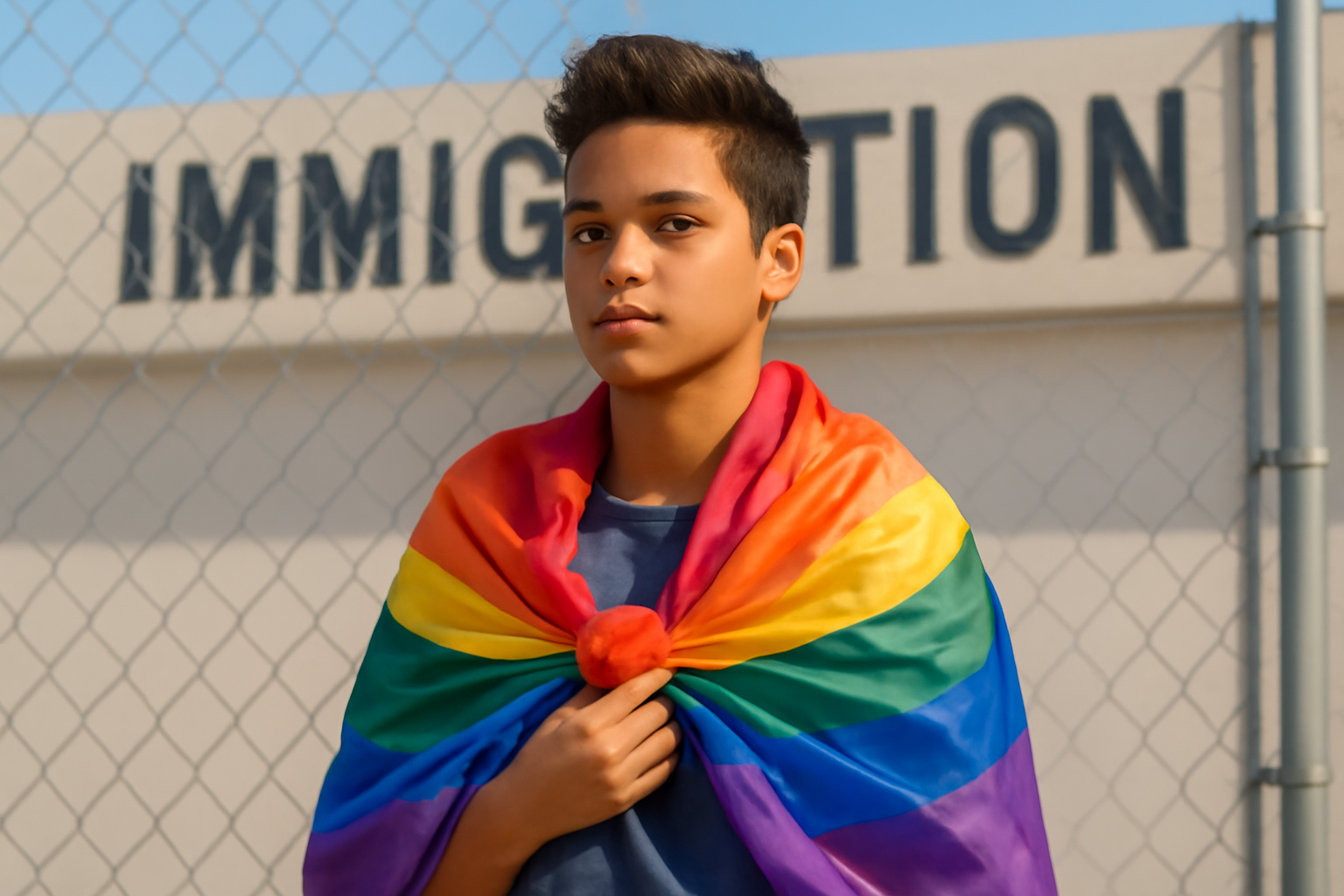
In recent years, immigration policies have increasingly become a point of contention and debate across many nations, particularly in the United States. Under the previous administration, there were significant changes and crackdowns on immigration that have had profound effects on various communities. Among the most vulnerable groups affected by these policies are LGBTQ+ individuals who are non-U.S. citizens.
Challenges Faced by LGBTQ+ Immigrants
LGBTQ+ immigrants often face unique challenges that set them apart from other immigrant groups. Many come from countries where sexual orientation and gender identity are criminalized or heavily discriminated against, seeking refuge in countries that offer more protections and freedoms. However, changes in immigration policies can threaten the safety and futures of these individuals in several ways.
Firstly, the fear of deportation can be particularly acute for LGBTQ+ asylum seekers. Deportation could mean returning to countries where they may face persecution, discrimination, or even violence due to their sexual orientation or gender identity. This fear is compounded by the complexities of the asylum system, which can involve lengthy processes and requires individuals to prove their case—a challenging task when one's life and identity are at stake.
Policy Changes and Their Impact
The previous administration implemented a series of immigration policies that significantly increased the difficulty for immigrants to seek asylum and legal residence in the United States. For LGBTQ+ individuals, these policies were especially detrimental. Measures such as the "Remain in Mexico" policy forced asylum seekers to wait outside the U.S. for their court hearings, often in dangerous and unsanitary conditions, further exacerbating the risks faced by LGBTQ+ individuals.
Additionally, the narrowing of guidelines for what constitutes a "credible fear" for asylum claims made it harder for LGBTQ+ individuals to argue their cases if their persecution was based on sexual orientation or gender identity. The criteria for asylum became stricter, requiring more detailed evidence and documentation that is often difficult to obtain, especially from countries where LGBTQ+ rights are not recognized or respected.
Community and Organizational Support
In response to these challenges, numerous LGBTQ+ rights organizations and immigrant advocacy groups have stepped up to provide support and resources. These organizations offer legal assistance, counseling, and advocacy to help LGBTQ+ immigrants navigate the complex immigration system. They work tirelessly to raise awareness about the unique challenges faced by this community, advocating for more inclusive and fair immigration policies that recognize the specific vulnerabilities of LGBTQ+ immigrants.
Furthermore, community support networks play a crucial role in providing emotional and practical support to LGBTQ+ immigrants. These networks can offer safe spaces and connect individuals with resources such as housing, health care, and employment opportunities, which are essential for their well-being and integration into society.
The Path Forward
As the political landscape continues to evolve, there is hope that future policies will be more inclusive and considerate of the needs of LGBTQ+ immigrants. Advocates are pushing for reforms that provide clearer pathways to asylum and residency for those fleeing persecution due to their sexual orientation or gender identity. They are also calling for the elimination of policies that disproportionately harm vulnerable populations, advocating for a system that recognizes the dignity and rights of all individuals, regardless of their immigration status.
Ultimately, creating a more just and equitable immigration system requires a concerted effort from lawmakers, advocates, and communities. By centering the voices and experiences of LGBTQ+ immigrants, we can work towards policies that uphold human rights and provide safety and opportunity for all.
Related Posts
Triumphant Trans Woman Wins Legal Battle and Inspires Others to Stand Up for Their Rights
Breaking new ground: a landmark victory in transgender rights After battling in courtrooms and enduring endless challenges, Diana Portillo, a transgender woman, has secured a monumental victory in her decade-long fight against workplace discrimination. The result? Nearly $1 million awarded in a historic settlement. But this isn't just a win on paper—it represents a powerful precedent in combati [...]
Pride Month in Latin America: Protests and Demands for Equality
**Celebrating Pride and advocating LGBTQ+ rights in Latin America** Pride Month in Latin America was a lively mix where celebration met activism. Communities united, not just throwing a party but making a stand—demanding equality and pushing governments toward better protection and rights recognition. Throughout Latin America, pride events erupted in marches and cultural displays, each with a c [...]
Transgender Erasure Actions Implemented by National Park Service
```html Trump administration's impact on national park service and transgender recognition The Trump administration made notable moves in undermining transgender representation, which included directing agencies like National Park Service not include "T" and "Q" when they refered “LGBTQ” in any official communication. This move seems part a broader plan by this administration aimed at reducin [...]